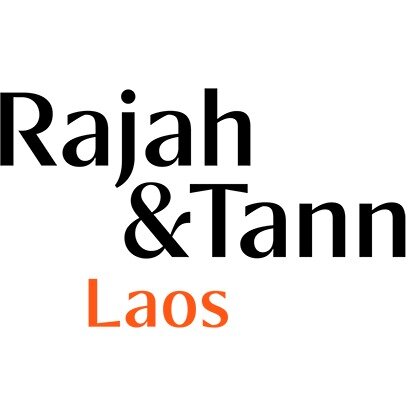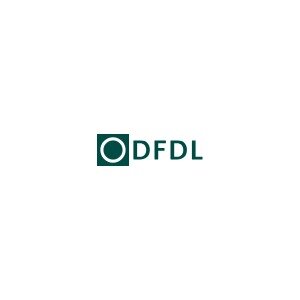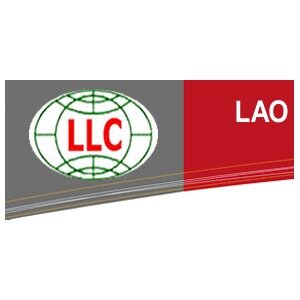Best Financial Services Regulation Lawyers in Laos
Share your needs with us, get contacted by law firms.
Free. Takes 2 min.
Or refine your search by selecting a city:
List of the best lawyers in Laos
About Financial Services Regulation Law in Laos
In Laos, the financial services sector is regulated to ensure stability, transparency, and consumer protection within the industry. The Bank of the Lao PDR is the main regulatory authority overseeing banking operations, monetary policy, and foreign exchange operations. Additionally, the Ministry of Finance and related governmental bodies implement and enforce policies related to financial services. Regulations cover a broad range of activities, including banking, securities, insurance, and payment systems. The aim is to maintain a sound financial environment conducive to sustainable economic growth.
Why You May Need a Lawyer
There are several reasons why you might require legal assistance in navigating Financial Services Regulation in Laos. Common scenarios include:
- Establishing a financial institution or business and needing to understand regulatory requirements.
- Dealing with compliance issues or regulatory audits and investigations.
- Addressing consumer protection matters involving financial products or services.
- Resolving disputes with financial institutions or regulatory bodies.
- Understanding cross-border financial transactions and applicable laws.
Consulting with a lawyer can offer clarity, assist in ensuring compliance with local laws, and provide representation in disputes.
Local Laws Overview
Laos has several laws and regulations relating to financial services, including:
- The Law on Commercial Banks, which establishes rules for the operation and management of banking institutions.
- The Law on the Securities Market, regulating securities trading and protecting investors.
- The Insurance Law, providing guidelines for insurance companies and protecting insured parties.
- The Payment Systems Law, overseeing electronic payments and clearing systems.
These regulations serve to protect consumers, ensure fair play, and promote financial stability in the country.
Frequently Asked Questions
What is the role of the Bank of the Lao PDR in financial regulation?
The Bank of the Lao PDR is the central regulatory authority for banking and financial services, responsible for issuing licenses, supervising financial institutions, and ensuring industry compliance with both domestic and international standards.
Do foreign banks need specific licenses to operate in Laos?
Yes, foreign banks must obtain a license from the Bank of the Lao PDR to operate within the country. They must comply with local regulations and meet certain criteria regarding capital adequacy and operational management.
What is the process for settling disputes with financial institutions?
Disputes can be settled through negotiation, mediation, or, if necessary, judicial processes. It's advisable to seek legal counsel to navigate these processes effectively.
How are consumers protected under Lao financial regulations?
Financial regulations in Laos include provisions to protect consumers by ensuring transparency, fair access, and recourse mechanisms for grievances related to financial products and services.
Is there a cap on interest rates for loans in Laos?
Yes, regulations may impose caps on interest rates for certain types of loans to prevent usurious lending practices. These are structured to protect borrowers from excessively high interest rates.
What happens if a financial institution violates regulatory requirements?
Violations can result in penalties, including fines, suspension, revocation of licenses, and other corrective actions as deemed appropriate by the regulatory authorities.
Are there provisions for anti-money laundering in Laos?
Yes, financial institutions must comply with anti-money laundering laws and regulations to prevent illegal financial activities. This includes customer due diligence and reporting suspicious activities.
How are cross-border financial transactions regulated?
Cross-border transactions are subject to regulations governing foreign exchange and money transfers to ensure they comply with national security and economic policies.
Do insurance companies require specific registration in Laos?
Insurance companies must register with the Ministry of Finance and comply with specific regulations governing their operation, solvency, and consumer protection measures.
How can I ensure my financial institution is in compliance with local laws?
It is advisable to regularly review local laws and regulations, maintain open communication with regulatory bodies, and consult legal experts as necessary to ensure compliance.
Additional Resources
For those seeking further information, the following resources can be helpful:
- The Bank of the Lao PDR's website offers access to regulations, reports, and contact information.
- The Ministry of Finance's Department of State-Owned Enterprises and Insurance Services provides resources related to insurance and financial services.
- Legal experts and law firms in Laos specializing in financial services regulation offer invaluable insights and guidance.
Next Steps
If you require legal assistance in financial services regulation, consider the following steps:
- Identify the specific legal issue you are facing and gather relevant documentation.
- Research and consult with a lawyer who specializes in financial services regulation in Laos.
- Set up a detailed conversation with the legal expert to discuss your case and explore potential solutions.
- Ensure you understand the legal pathways available and any associated costs.
Taking these steps can significantly impact the successful resolution of your regulatory and legal challenges in the financial services sector.
Lawzana helps you find the best lawyers and law firms in Laos through a curated and pre-screened list of qualified legal professionals. Our platform offers rankings and detailed profiles of attorneys and law firms, allowing you to compare based on practice areas, including Financial Services Regulation, experience, and client feedback.
Each profile includes a description of the firm's areas of practice, client reviews, team members and partners, year of establishment, spoken languages, office locations, contact information, social media presence, and any published articles or resources. Most firms on our platform speak English and are experienced in both local and international legal matters.
Get a quote from top-rated law firms in Laos — quickly, securely, and without unnecessary hassle.
Disclaimer:
The information provided on this page is for general informational purposes only and does not constitute legal advice. While we strive to ensure the accuracy and relevance of the content, legal information may change over time, and interpretations of the law can vary. You should always consult with a qualified legal professional for advice specific to your situation.
We disclaim all liability for actions taken or not taken based on the content of this page. If you believe any information is incorrect or outdated, please contact us, and we will review and update it where appropriate.
Browse financial services regulation law firms by city in Laos
Refine your search by selecting a city.












